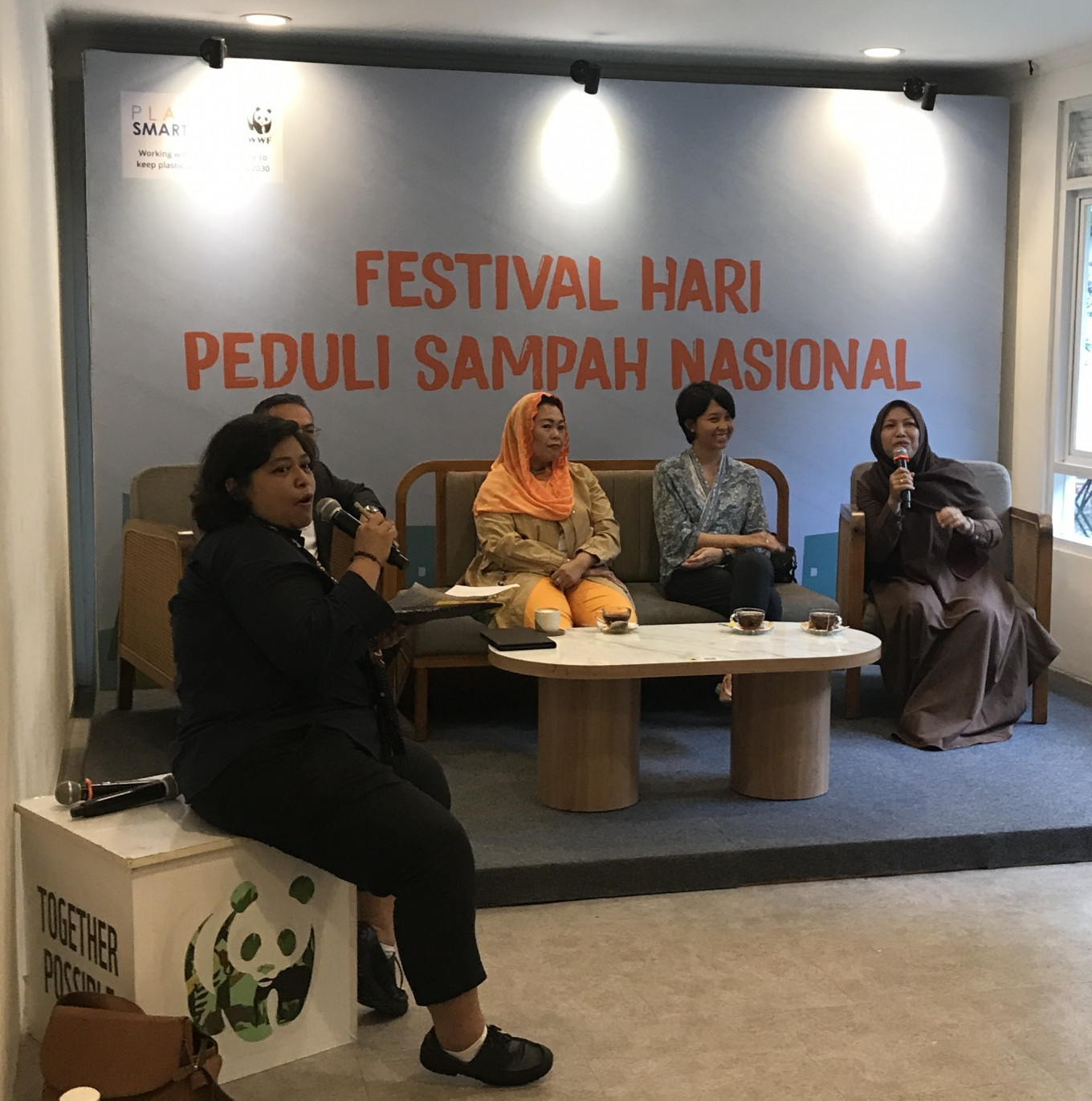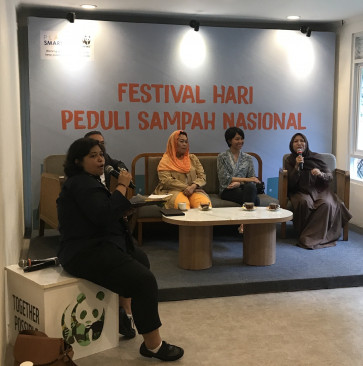Popular Reads
Top Results
Can't find what you're looking for?
View all search resultsPopular Reads
Top Results
Can't find what you're looking for?
View all search resultsWWF take on Indonesia's piles of plastic waste
The World Wildlife Fund (WWF) Indonesia has launched its most ambitious effort yet to clear the country of plastic waste, as the NGO recently launched its Plastic Smart Cities initiative
Change text size
Gift Premium Articles
to Anyone
T
he World Wildlife Fund (WWF) Indonesia has launched its most ambitious effort yet to clear the country of plastic waste as the NGO recently launched its Plastic Smart Cities initiative
The sight of plastic waste floating in the oceans and rivers polluting the natural environment, blighting the landscape and endangering wildlife like sea turtles and dolphins is one that is all too familiar. While the sight might be the tip of the iceberg, it was enough to prompt the World Wildlife Fund (WWF) Indonesia to launch its Plastic Smart Cities website plasticsmartcities.id under the campaign slogan of “No Plastic in Nature”, with the stated target of no plastic in nature by 2030.
“Only 1 percent of all plastic waste in the ocean floats to the surface, while 99 percent sinks to the seabed… [WWF Indonesia] estimated that there are 8 million tonnes of waste [released] in the ocean annually,” noted WWF Indonesia’s Plastic Smart Cities initiative on its website, as well as affiliate plasticsmartcities.org.
Plastics, overpopulation and increased consumption
WWF Indonesia Climate and Market Transformation director Irfan Bachtiar said the program “aims to reuse plastic trash,” among other goals. He said that the Plastic Smart Cities program was based in Jakarta and its satellite cities of Bogor and Depok in neighboring West Java, due to their contribution to the waste crisis.
“[The public] often assumes that much of the waste originates from coastal areas, fishermen or shipping. In fact, they originate in rivers, upstream from inland areas that are brought downstream to the sea,” he said during the Plastic Smart Cities launch in Blok M, South Jakarta, on Feb. 25. “Jakarta generates over 72 million tonnes of trash annually, much of which is plastic. This stemmed from the capital’s growing population and the increase in consumption that comes in its wake.”
WWF Indonesia Plastic Smart Cities coordinator Made Putri reiterated Irfan’s points. She attributed the problem to the “linear economy”, where products are bound to become waste because of their design and manufacture, particularly the use of single-use plastics instead of their recyclable counterpart. This contrasts with the circular economy behind WWF’s initiative with its ‘reduction/reuse, separate/collect and recycling/recovery’ of plastics, as well as the management of landfills.



















